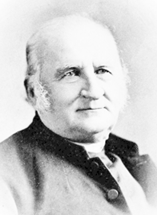Planned Giving at St. Paul’s
As a community of faith, we are indebted to those who came before us, grateful for their generosity and enduring commitment to celebrate and share God’s love through St. Paul’s. The baton is now ours, and we are called to partner with past generations through the Endowment Fund to ensure the future for those who will succeed us and faithfully carry on St. Paul’s mission and ministries.
Planned giving, or legacy giving as it is also called, is a particular type of charitable giving that enables a person to make plans to give a gift to a charity like St. Paul’s as part of an estate plan. The Endowment Fund of St. Paul’s was created to receive those gifts. While it usually requires the assistance of financial or legal professionals, planned giving is not reserved for the wealthy. It is available to anyone interested in making thoughtful and intentional choices for the ultimate disposition of their personal resources.
Why Make a Planned Gift? There are numerous benefits associated with planned giving. Parishioners who care deeply about St. Paul’s find great satisfaction in helping to ensure the future strength of the church’s ministries. Many also choose to make a planned gift to commemorate a loved one or celebrate their own relationship with Christ through St. Paul’s. In addition, planned giving may offer tax savings to donors and their heirs, and potentially enable donors to make larger gifts than they thought possible.
Types of Planned Gifts
Planned gifts come in a variety of forms from simple bequests to complex trusts — all with different requirements and advantages depending on your circumstances. We recommend that you consult with your professional tax, financial, and legal advisors to help you develop a solution tailored to your specific needs and the needs of your family.
Planned gifts may include:
Bequest. A bequest is a gift made through a will or a trust; it is one of the most popular ways to give a planned gift. By adding a provision in your will or trust, you can gift St. Paul’s a specific asset, a specific amount, a percentage, or all or part of the residue of your estate.
Beneficiary Designations. Naming St. Paul’s as a primary or contingent beneficiary of a retirement, bank, or investment account is a no-cost, flexible, and potentially tax-smart way to make a planned gift. Beneficiary designation forms are available from the account administrator.
Various Charitable Trusts, including Life Income Gifts. A life income gift enables you to make a charitable gift to St. Paul’s, yet still keep — and live on — the income. Some examples of life income gifts include pooled income funds, charitable gift annuities, and charitable remainder trusts.
Life Insurance. Gifting a life insurance policy outright or naming St. Paul’s as a primary or contingent beneficiary on a policy is an attractive option for some donors because it may make it possible to give a larger gift—of the death benefit—than smaller gifts of cash.
Some gifts may also be given during life:
Appreciated Securities. Donating appreciated stocks, bonds, or mutual funds that you have owned for at least one year may provide special tax benefits, such as claiming an income tax deduction for the full market value of the securities and avoiding payment of capital gains taxes on the appreciation.
IRA Qualified Charitable Distribution. If you are 70½ or older, you may be able to use your IRA to make a tax-smart charitable gift to St. Paul’s. A qualified charitable distribution (QCD) or charitable rollover from your IRA can potentially reduce your taxable income and satisfy all or part of your required minimum distribution.
St. Paul’s Episcopal Church, its employees or representatives, do not offer legal or financial advice. We strongly urge prospective donors to consult with their estate planning attorney, financial advisor, accountant, or other appropriate professional before making any material decisions based on information we provide through our website, printed materials, or other sources.
The 1858 Circle
St. Paul’s was established in 1858 by The Rt. Rev. Thomas Atkinson, Bishop of North Carolina. Bishop Atkinson had a bold vision: He believed in an expansive, broad church, united in its mission to carry the Gospel to all people. For more than 160 years, the people of St. Paul’s have shared this vision and sustained the church through their faith and generosity.
The 1858 Circle was created to honor those who have continued this legacy of faith-filled generosity by remembering St. Paul’s in their estate plans. Planning a gift now to benefit St. Paul’s in the future is a meaningful way for individuals and families to continue their support of St. Paul’s beyond their lifetimes. It is a confident expression of hope for the future and, for many, an important celebration of their relationship with God and the sacred work that is done through St. Paul’s. A planned gift enables St. Paul’s to build its Endowment Fund and more completely fulfill its mission by developing its ministries beyond what is possible through its annual operating funds.
We invite you to join The 1858 Circle and make a planned gift to St. Paul’s. Like Bishop Atkinson, we believe the world needs disciples dedicated to serving one another with Open Doors, Open Hearts, and Open Hands.
Next Steps
IF YOU ARE STILL EXPLORING
- Visit the Endowment Fund link:
spechurch.com/endowment_fund/ - Consult with your financial
and legal advisors. - Contact: plannedgiving@spechurch.com
IF YOU HAVE MADE A GIFT
THANK YOU!
Please let us know so that we may thank you properly.

